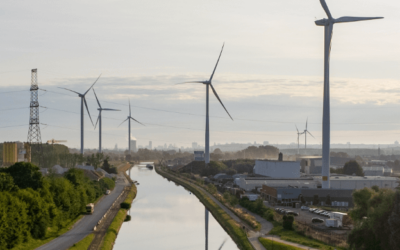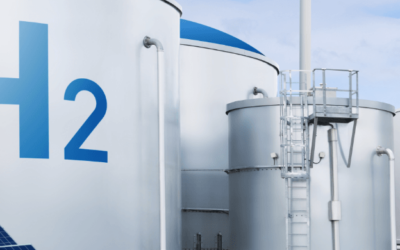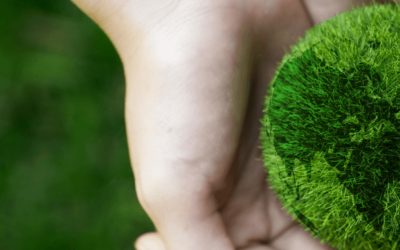LIFE is the main European funding programme to stimulate innovation that benefits the environment and the climate. The LIFE 2023 call has been published with the deadline for ‘traditional’ Standard Action Projects (SAPs) on 6 September. With 300 million euros – almost half of the total budget – the SAPs form the foundation of the LIFE programme. EGEN’s experts give you four tips for submitting a successful LIFE grant application.
1. Start early with a suitable project
As we already wrote in a recent article, starting to strategize on the project and application early is important for a successful application. This then leaves plenty of time to optimize every aspect of it and demonstrate the functionality and impact of the project. Although the proposal should be concise and clear, all actions need to be clearly described in detail. Leaving time to plan and develop the different actions of the project will make them easier to explain. Furthermore, in the evaluation of the application, bonus points may be awarded to proposals with among others exceptional synergies, uptake from other EU projects, and transnational implementations. At EGEN, we have developed an integral approach to manage the LIFE proposal preparation and submission process. It starts with the preparation of the process, then the scoping of the project, the writing of the application and finally the submission.
Starting early will also help you understand which aspects of your project make it a good LIFE project, this is especially relevant during the preparation and scoping phase. Since LIFE is a bottom-up grant scheme, there is a lot of freedom for your own project objectives, however it is very important to not forget to scope the project in such a way that it still meets the overarching LIFE-requirements. To better understand how your project fits into the LIFE programme, contact us so we help you with the application process and project development from early on.
2. Find which policy framework and priority topics your project fits into
The LIFE grant scheme is designed to help achieve policy goals of the European Green Deal. Many different topics can be submitted for the LIFE programme, so there are various policies and frameworks that can be relevant. Understanding which goal a project furthers – and highlighting that in the application – is important. Different policy frameworks are relevant in the different subprogrammes and their topics. Linking a project to specific EU goals related to the topic, and to the overarching policies it fits into makes it clear how the goals of the project should be formulated. Explaining in the application how the project helps further EU policy goals related to the European Green Deal makes the application more suitable for a LIFE grant. For example, if a project reduces GHG emissions, the goal of climate neutrality by 2050 should be mentioned in the application.
Each year different topics within the subprogrammes are prioritized. This year, interesting priority topics are:
- the collection and recycling of waste from Electrical and Electronic Equipment (WEEE)
- batteries
- plastic (packaging)
- bio-waste
- critical raw materials (CRM)
- the reduction of particulate matter (PM) in areas of high pollution
- sustainable (zero-emission) transport
- improving water quality
- innovations that reduce the impact of chemicals on the environment.
3. Find the right partners in Europe
Although a unique feature of LIFE is that you can apply without project partners, LIFE is about having a positive impact on all EU member states, therefore finding partners in various EU countries may help solidify the European dimensions of the project. Furthermore, partners based in different regions may help understand how to implement projects in different locations. Partners may be part of the industry, or knowledge institutes, legislators, and governments. Society in general may also be a relevant stakeholder. Partners will be participating during the whole project lifetime, which needs to be kept in mind when choosing the most suitable ones. Knowledge or skill that is needed for the realization of the project may be provided by partners, so they should be chosen according to the needs of the project. The EGEN’s Wheesbee tool will help you easily find the relevant partners in your sector of interest.
4. Measure your impact beyond GHG emissions or other relevant environmental indicators
To demonstrate the positive impact a project will bring, it is important to quantify the outcomes. An important measure is the reduction in GHG emissions that the project brings, which should definitely be included in the application. However, LIFE does not only focus on climate, but more generally on the environment and circularity. Going beyond the expected GHG reduction calculations and measuring or estimating the impacts of a project on other relevant environmental indicators demonstrates how it contributes to specific environmental goals. The criteria you assessed should be relevant to the policy framework and topic corresponding to the subprogramme of the application. For example, if a project is related to the air topic in the circular economy and quality of life subprogramme, quantifying the reduction in particulate matter (PM) in detail would add value to the proposal.
Need more help? Contact us!
At EGEN, we can help you through every step of your LIFE application starting from preparing the process, scoping the project, writing the application, and finally submitting it. We have done numerous successful LIFE applications and we are ready to help you with yours.


